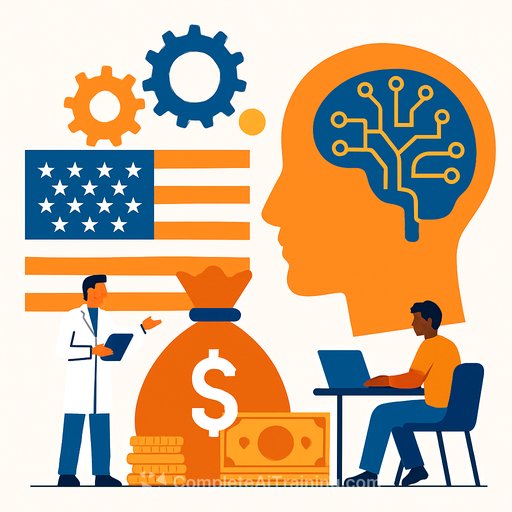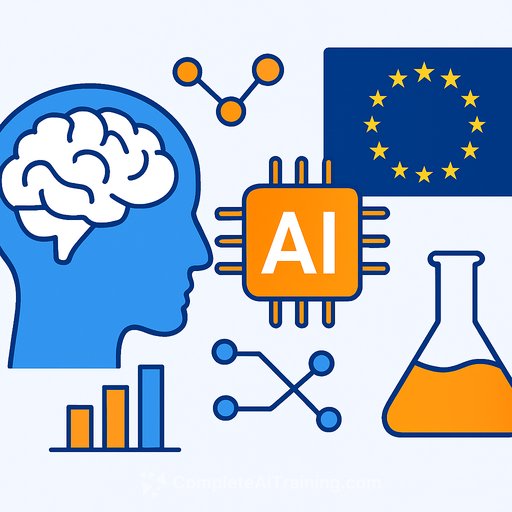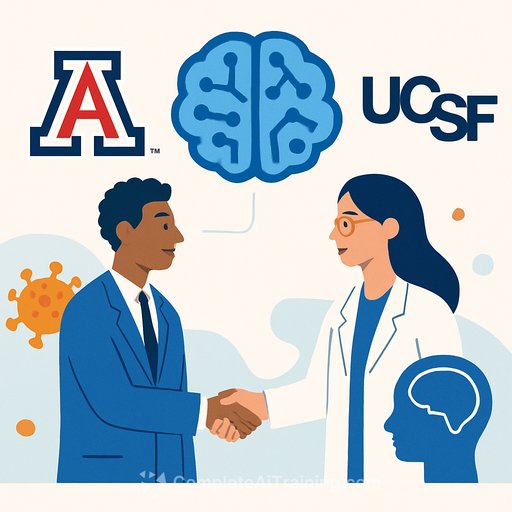NSF Commits $100 Million to Strengthen U.S. Leadership in Artificial Intelligence
On July 29, 2025, the U.S. National Science Foundation (NSF), alongside partners Capital One and Intel, announced a $100 million investment to support five National Artificial Intelligence Research Institutes and a central community hub. This initiative targets significant advances in areas like mental health, materials discovery, STEM education, human-AI collaboration, and drug development.
This funding supports the White House AI Action Plan, reinforcing America’s position as a leader in artificial intelligence. The aim is clear: accelerate open innovation, prepare an AI-ready workforce, and boost the nation’s global competitiveness.
Driving Practical AI Solutions Across Sectors
Beyond the buzz around chatbots, AI quietly enhances various industries. It helps doctors detect diseases, improves manufacturing processes, supports agriculture resilience, and strengthens financial systems. The AI Institutes are tasked with transforming research into scalable solutions that have real-world impact.
Additionally, the institutes will build a national infrastructure for AI education and workforce development. This includes training researchers and practitioners, empowering educators, and increasing AI literacy in communities—supporting Executive Order 14277 that promotes AI education for American youth.
Meet the AI Research Institutes
Each institute focuses on a distinct area, combining AI research with practical benefits:
- NSF AI-Materials Institute (NSF AI-MI) – Led by Cornell University, this institute accelerates discovery of next-generation materials crucial for energy, sustainability, and quantum tech. It will develop a cloud-based AI Materials Science Ecosystem integrating large language models with experimental data, simulations, and scientific literature. NSF AI-MI also partners with schools and industry to train students at all levels in AI and physical sciences.
- NSF AI Institute for Foundations of Machine Learning (NSF IFML) – Based at The University of Texas at Austin, NSF IFML builds on its previous work to advance generative AI. Its research on diffusion models powers technologies like Stable Diffusion 3 and Flux. The next phase will expand generative AI applications to protein engineering and clinical imaging and address challenges like noisy data and model reliability in health contexts.
- NSF Institute for Student AI-Teaming (NSF iSAT) – Led by the University of Colorado at Boulder, NSF iSAT transforms STEM learning by developing AI partners that facilitate group discussions and reasoning. Over 6,000 middle-school students and educators have benefited so far. The institute will continue advancing AI support for collaborative learning and develop semester-long AI literacy curricula.
- NSF Molecule Maker Lab Institute (NSF MMLI) – Operating from the University of Illinois Urbana-Champaign, NSF MMLI accelerates molecule discovery for medicine, materials, and clean energy. The upcoming phase will create advanced AI tools, including new language models and intelligent agents, to design drugs, catalysts, and new materials.
- NSF AI Institutes Virtual Organization (NSF AIVO) – Based at the University of California, Davis, NSF AIVO acts as the national hub connecting all AI Institutes, government stakeholders, and the public. It fosters collaboration, supports public-private partnerships, and promotes awareness of AI’s role in tackling real-world problems.
- NSF AI Research Institute on Interaction for AI Assistants (NSF ARIA) – Led by Brown University, NSF ARIA focuses on developing next-generation AI assistants that are safer, more effective, and adaptable to individual user needs.
Building a Future-Ready AI Workforce
This investment continues to expand a nationwide AI research network dedicated to innovation, competitiveness, and public benefit. Training the next generation of AI researchers and practitioners is central to this effort, ensuring the U.S. remains at the forefront of AI development.
For professionals interested in expanding their AI expertise, exploring specialized courses can be a practical step. Resources are available at Complete AI Training, offering tailored learning paths aligned with industry demands.
Discover more about the National Artificial Intelligence Research Institutes and their collaborators through the interactive map provided by the NSF.
Your membership also unlocks:






